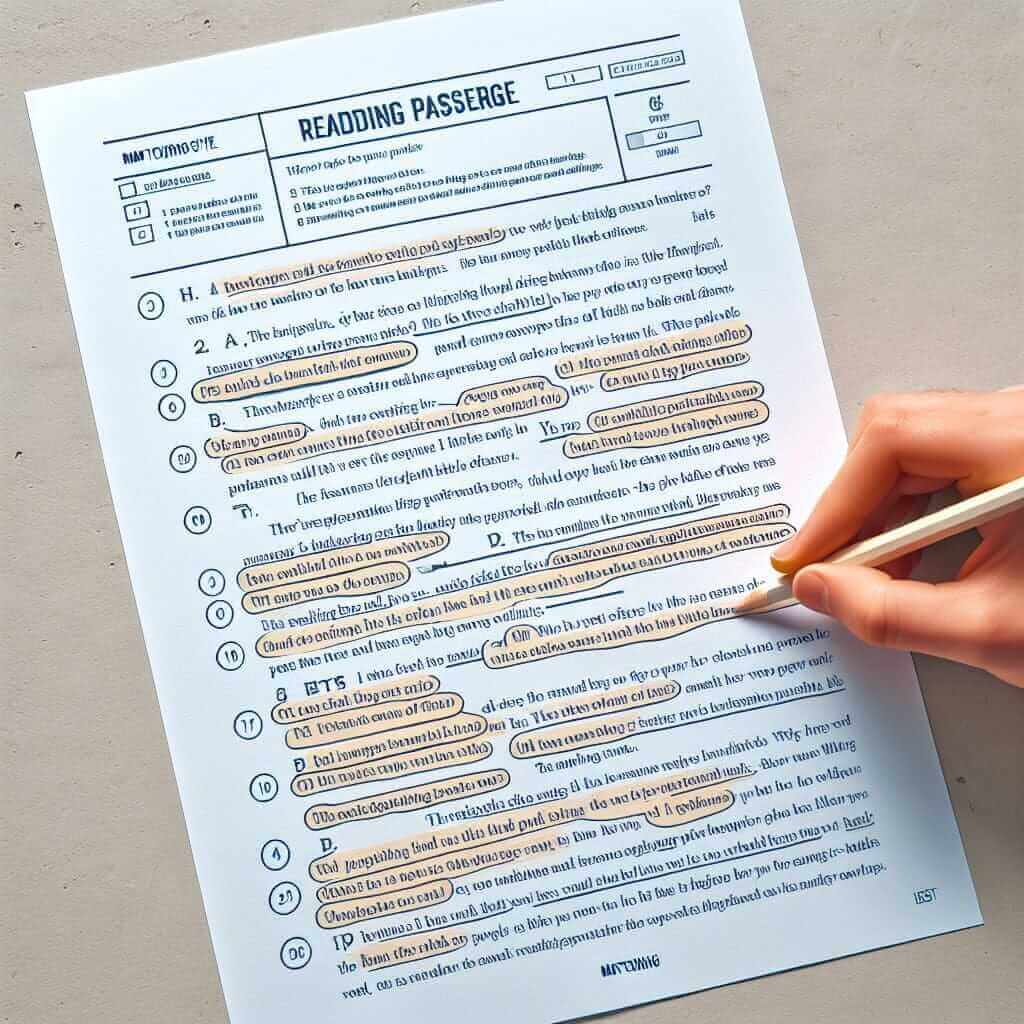Matching questions are a common question type in the IELTS Reading test. They require you to match information from a passage to a set of prompts, such as statements, headings, or categories. These questions can be challenging because they test your ability to scan for specific details and understand the overall organization of a text. This guide will provide you with a comprehensive understanding of IELTS matching questions and equip you with the skills to tackle them confidently.
Understanding IELTS Matching Questions
Matching questions assess your ability to:
- Skim and scan: Quickly find relevant information in a text.
- Paraphrase: Identify synonyms and reworded expressions of key concepts.
- Comprehend relationships: Understand how ideas and information are connected within the passage.
Types of Matching Questions
1. Matching Headings to Paragraphs
In this type, you’ll be given a list of headings and asked to match them to the appropriate paragraphs in the passage.
Example:
List of Headings
i. The impact of climate change on agriculture
ii. The importance of sustainable farming practices
iii. Solutions for reducing food waste
Passage Excerpt:
Paragraph A: … discusses the increasing frequency of droughts and floods due to climate change and their detrimental effects on crop yields…
Answer: Paragraph A – i
2. Matching Statements to People/Sources
Here, you’ll need to connect statements to the individuals or sources that made them within the passage.
Example:
List of People
A. Professor Johnson
B. Dr. Smith
Statements:
i. Believes that artificial intelligence will revolutionize healthcare.
ii. Argues that ethical considerations are paramount in AI development.
Passage Excerpt:
“While Professor Johnson emphasizes the transformative potential of AI in medicine, Dr. Smith cautions about the ethical implications…”
Answer: i – A, ii – B
3. Matching Information to Categories
This type involves categorizing information from the passage into predefined groups.
Example:
Categories:
- Advantages of solar energy
- Disadvantages of solar energy
Information from the Passage:
i. High initial investment costs
ii. Renewable and sustainable energy source
Answer: i – Disadvantages of solar energy, ii – Advantages of solar energy
Strategies for Answering Matching Questions
1. Read the Instructions Carefully
Pay close attention to the specific instructions for each matching task. Note any limitations, such as whether options can be used more than once.
2. Skim the Passage
Before diving into the questions, quickly skim the passage to get an overview of its main ideas and structure.
3. Identify Keywords
Underline keywords in both the questions and the passage. Look for synonyms and paraphrases that convey the same meaning.
4. Focus on One Question at a Time
Concentrate on one question at a time to avoid confusion and maintain accuracy.
5. Eliminate Options Strategically
If you’re unsure of an answer, try eliminating options that are clearly incorrect. This will increase your chances of selecting the right answer.
Common Mistakes to Avoid
- Rushing through the passage: Take your time to understand the text thoroughly.
- Ignoring keywords: Keywords are crucial for finding the right information quickly.
- Misinterpreting information: Ensure you fully grasp the meaning before making a match.

Practice Makes Perfect
Regular practice is essential for improving your performance in IELTS matching questions. Utilize practice tests and sample questions to familiarize yourself with different question formats and refine your strategies.
Conclusion
Mastering IELTS matching questions requires a combination of skimming and scanning skills, vocabulary knowledge, and comprehension abilities. By understanding the different question types, employing effective strategies, and practicing regularly, you can significantly enhance your ability to tackle these questions confidently and achieve your desired IELTS score.